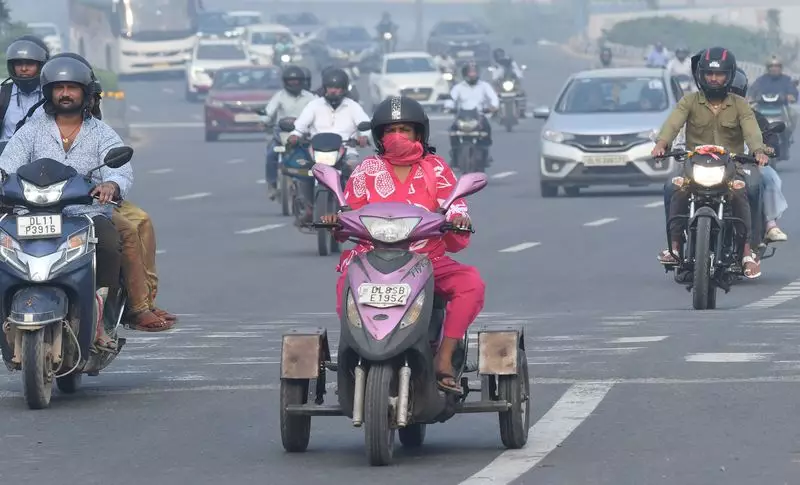
Delhi residents woke up to another day of hazardous air as the city's air quality index plummeted to the 'very poor' category, recording an alarming 312 on Thursday. The national capital continues to battle its annual pollution crisis, with visibility reduced and health concerns mounting across the region.
Pollution Levels Spike Across Monitoring Stations
The Central Pollution Control Board data revealed concerning readings from multiple monitoring stations. Major hotspots including Anand Vihar, Wazirpur, and Jahangirpuri showed AQI levels crossing the 300 mark, indicating severe health risks for vulnerable groups.
Meteorological conditions have played a significant role in the deteriorating air quality. Calm winds and low temperatures have created a toxic cocktail of pollutants hanging over the city, preventing the dispersal of harmful particles.
GRAP Measures Activated Immediately
In response to the worsening situation, the Commission for Air Quality Management has enforced Stage I of the Graded Response Action Plan. The immediate measures include:
- Strict enforcement of pollution control norms at construction sites
- Enhanced public transportation services to reduce private vehicle usage
- Regular mechanized cleaning of roads to control dust pollution
- Increased monitoring of industrial emissions
Health Advisory for Delhi Residents
Medical experts have issued urgent health recommendations for citizens, particularly those with pre-existing respiratory conditions:
- Avoid morning and evening walks when pollution levels peak
- Wear N95 masks when venturing outdoors
- Use air purifiers indoors, especially in children's rooms and elderly care areas
- Stay hydrated and include immunity-boosting foods in your diet
- Consult doctors immediately if experiencing breathing difficulties
Long-term Solutions Remain Elusive
Despite annual discussions and temporary measures, Delhi continues to grapple with the fundamental causes of winter pollution. The combination of vehicular emissions, industrial pollution, and seasonal factors like stubble burning creates a perfect storm that overwhelms the city's mitigation efforts.
Environmental activists emphasize that while emergency measures provide temporary relief, comprehensive policy changes and sustained implementation are crucial for lasting improvement in Delhi's air quality.






